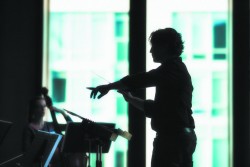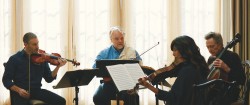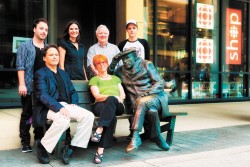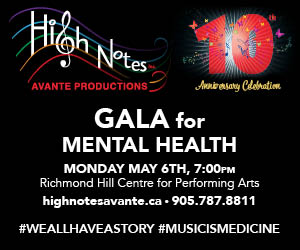Berio’s Sequenza Back to Back
Luciano Berio (1925–2003) is one of the great icons of New Music. Among the Italian composer’s towering works is Sequenza, a series of solos he wrote for individual instruments and voice. The sequenze are a throughline in Berio’s long and distinguished career. Sequenza I for flute was written in 1958, while Sequenza XIV for cello was completed in 2002, a year before the composer’s death. Each solo explores the fullest possibilities of the individual instrument.
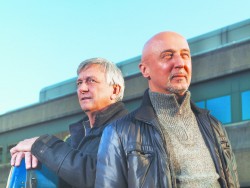 On Jan 21, 2013 at Walter Hall, the entire Sequenza will be presented, all 3 hours and 40 minutes of it, as part of the University of Toronto’s New Music Festival. The concert also includes the poetry written by Edoardo Sanguineti that precedes each solo. This is the first time that the complete Sequenza will be presented in Canada, and the concert features an outstanding group of soloists. (Please see page 11.)
On Jan 21, 2013 at Walter Hall, the entire Sequenza will be presented, all 3 hours and 40 minutes of it, as part of the University of Toronto’s New Music Festival. The concert also includes the poetry written by Edoardo Sanguineti that precedes each solo. This is the first time that the complete Sequenza will be presented in Canada, and the concert features an outstanding group of soloists. (Please see page 11.)
The artistic directors for the Berio Sequenza Project are cellist David Hetherington and accordionist Joseph Petric. Hetherington is the Toronto Symphony Orchestra’s assistant principal cellist and a well-known solo performer. Petric tours the world as a much-in-demand classical accordionist. (Both men will also be performing their instruments’ sequenze.)
The WholeNote had a lively, early morning, three-way telephone conversation with Hetherington and Petric about Berio, his sequenze, and the upcoming concert.
Click Read More for the interview.


